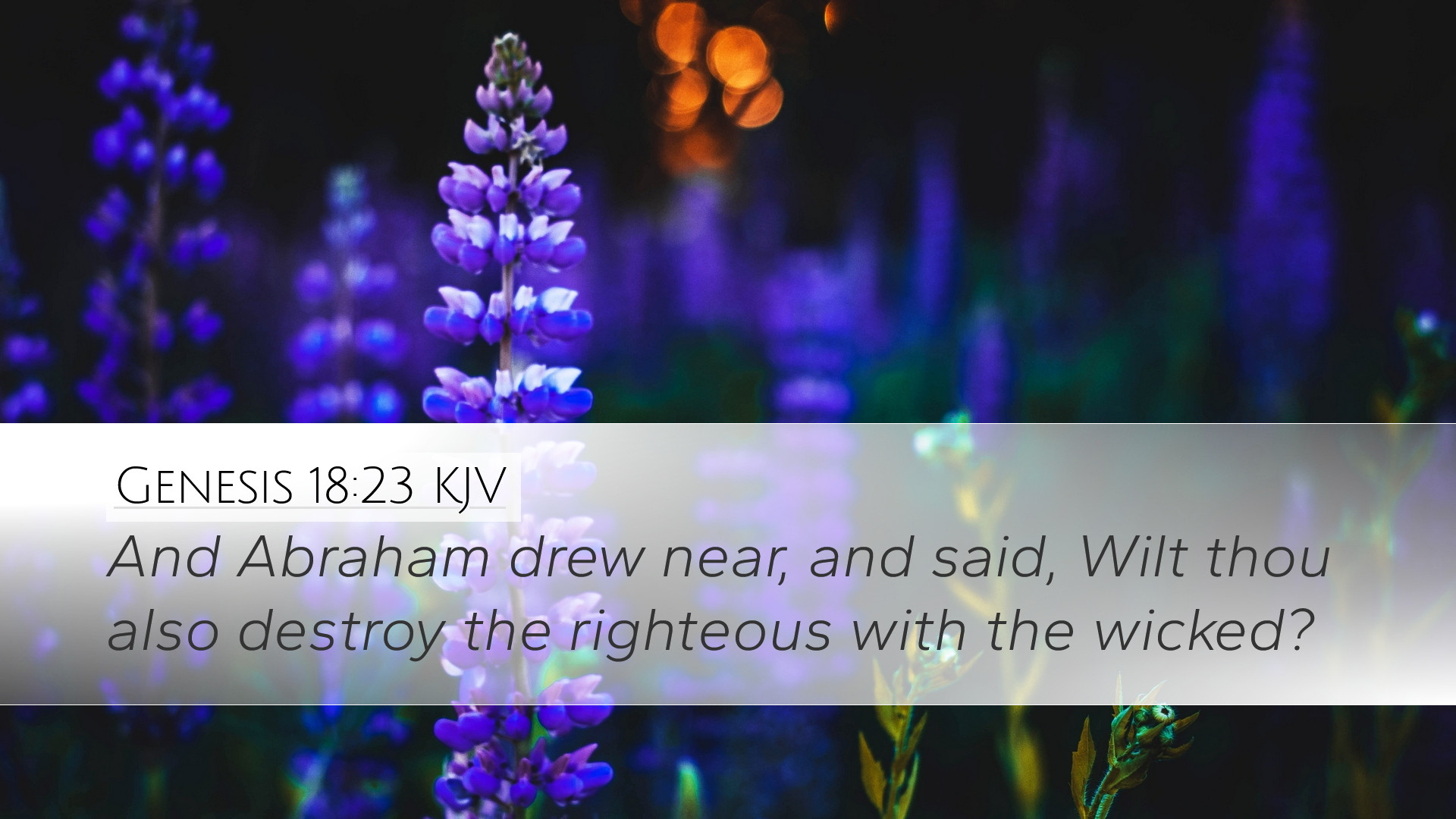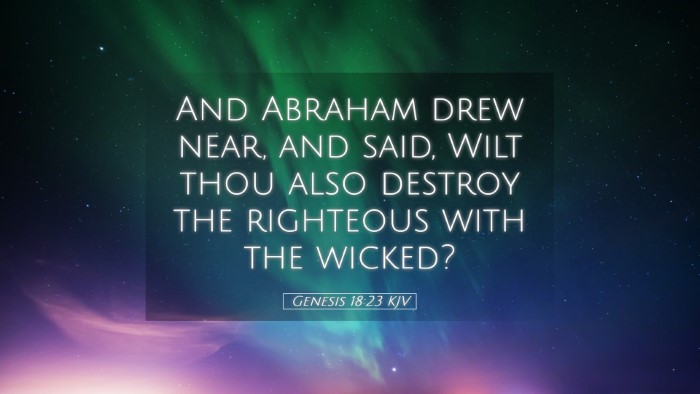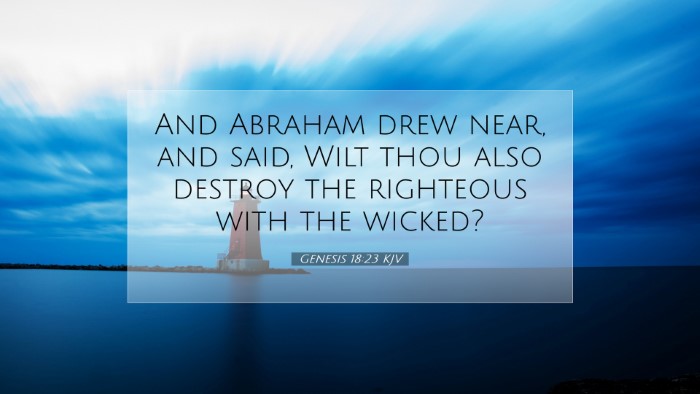Commentary on Genesis 18:23
Verse: "And Abraham drew near, and said, Wilt thou also destroy the righteous with the wicked?" (Genesis 18:23, KJV)
This verse captures a pivotal moment of intercession as Abraham boldly approaches God with a profound concern for justice and mercy in the impending judgment of Sodom and Gomorrah. The dynamics of this dialogue reveal fundamental theological insights regarding God's nature, human agency, and the relational aspects of prayer.
Contextual Overview
To fully understand the weight of Abraham's plea, it is essential to examine the surrounding context:
-
Divine Revelation: Earlier in Genesis 18, God reveals His plan to Abraham regarding the impending destruction of Sodom and Gomorrah, which was the result of their grievous sins (Genesis 18:20-21). This not only highlights God's omniscience but also His righteousness.
-
Abraham's Obligation: As a patriarch and friend of God, Abraham feels a moral responsibility to advocate for the innocent. The societal condition in Sodom leads to a poignant question of justice versus judgment.
The Character of Abraham's Intercession
Abraham's approach to God is marked by both humility and boldness:
-
Humility: Abraham “drew near,” suggesting a respectful posture, acknowledging God’s sovereignty and holiness. Matthew Henry notes that Abraham, despite his high standing as God's covenant partner, approaches God with a deep sense of reverence and deference.
-
Boldness: The act of questioning God displays a unique faith. Abraham recognized the gravity of the situation, demonstrating that it's permissible—indeed commendable—to seek understanding from God. Albert Barnes emphasizes that Abraham's boldness is rooted in his understanding of God's just nature; he believed that God would not annihilate the righteous alongside the wicked.
Theological Implications
This verse presents broader theological themes that are significant to pastors and scholars:
-
God’s Justice: Abraham's question underscores a critical truth about God's justice. Adam Clarke notes that Abraham relied on the intrinsic justice of God, suggesting that it is unfathomable for the righteous to suffer the same fate as the wicked. This raises essential discussions on divine justice and mercy.
-
Intercessory Prayer: Abraham serves as a model for intercessory prayer, emphasizing the importance of standing in the gap for others. His approach intrigues theologians who explore the dynamics of human prayer influencing divine action (Ezekiel 22:30).
-
Divine Relationship: This dialogue exemplifies the covenant relationship between God and Abraham. It reflects a level of intimacy that suggests that God welcomes human dialogue, fostering an understanding of prayer as a relational engagement rather than a mere ritual (James 2:23).
Practical Applications
The lessons derived from Genesis 18:23 can be applied to contemporary Christian life:
-
Encouragement in Prayer: Believers are encouraged to bring their concerns before God honestly and boldly, trusting in His character. This requires both familiarity with God's nature and an understanding of the burdens of those around them.
-
Advocacy for Justice: Just as Abraham stood for the righteous, modern Christians are called to advocate for justice and mercy in their communities. This implies an active engagement in social issues and compassion towards the marginalized.
-
Understanding of God’s Nature: The attributes of God revealed in this scripture urge believers to hold onto the truth of God's righteousness while engaging in prayer. Understanding God's nature as just and merciful provides a framework for trusting Him in difficult times.
Conclusion
Genesis 18:23 is a profound scripture that opens a deep well of theological reflection and practical application. Abraham's intercession not only prompts questions of justice but also illustrates a model for believers today. It encourages a proactive stance in prayer that is steeped in an understanding of God's character. As pastors, students, and theologians ponder this interaction, they find rich opportunities to explore the dynamic between divine sovereignty and human responsibility, as well as the call to advocate for righteousness in a fallen world.


